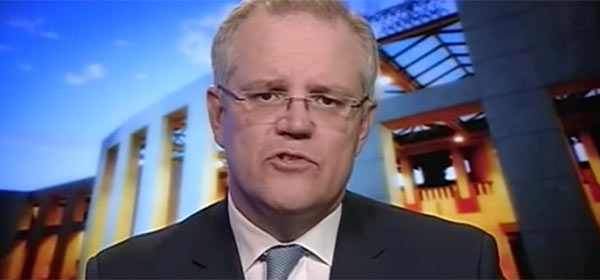With Treasurer Scott Morrison yesterday defiantly ruling out any changes to negative gearing, it’s clear that this year’s Budget is going to be a battlefield on housing affordability.
While Mr Morrison is believed to have been considering changes that would have limited the deductibility of interest on mortgages held by investors, failure to secure the support of the Liberal Party’s right, namely, Immigration Minister Peter Dutton and Finance Minister Mathias Cormann, has killed the issue off for Budget 2017-18 at least.
Addressing the Australian Housing and Urban Research Institute, Mr Morrison said, “Regardless of one’s opinions of the merits or otherwise of negative gearing, it is an established and structural component of Australia’s housing markets. Disrupting negative gearing would not come without a cost, especially to renters.”
Mr Morrison is reportedly hopeful that by categorically stating that there will be no changes to negative gearing, an agreement can be reached on changes to capital gains tax, which, a four weeks out from Budget 2017-18, are still being costed and modelled.
However, the concern over housing affordability will not be diminishing any time soon, with research commissioned by the Liberal Party from Crosby Textor indicating that it’s a critical issue for many. The research found that while Australians did not want Australia’s debt to increase, it wasn’t a large concern. Rising prices, from housing to electricity, jobs for their children and flat wage growth all ranked highly as issues that need addressing.
Read more at ABC.net.au
Opinion: Options for homeownership but what about renters?
When it comes to helping future homeowners, Treasurer Scott Morrison has options to consider. Not least the one that keeps rearing its head – using superannuation savings to fund a deposit.
While it’s unpopular with those who believe that saving for your own retirement should be the sole purpose of superannuation, it is one of the options said to be considered by the Government. However, there is the argument that giving people access to funds to buy housing will only push prices up, but with prices already rocketing, this argument is practically moot.
Retirees looking to downsize could also be handed a tax break, with the hope that it will free up more property and reduce market overheating. This is all well and good, but there are many more issues to be considered by downsizers than simply the financial benefits. If there is no affordable housing for them to move into, chances are they will stay put – tax break or no tax break.
But what about the poor renters – and I mean poor in financial terms. Renters account for 15 per cent of Australians aged between 65 and 85. That’s 15 per cent of retirees who will never own their own home. And as we know from our research for the Retirement Affordability Index™, which was published on Sunday, the need to spend the vast majority of their income on rent means that renters have to make cuts elsewhere – namely, on health, transport and recreation.
So, while it may be important to help people onto the ladder of homeownership, it’s equally important to help those who have no hope of owning their own home.
What do you think? Is superannuation the best way to help people own their own homes? Would you be more likely to downsize if there were tax breaks available? Do you think older renters are overlooked in the housing affordability discussion?
Related articles:
Retirement haves and have nots
Retirees pessimistic about the future
Could super be used to buy a home?

